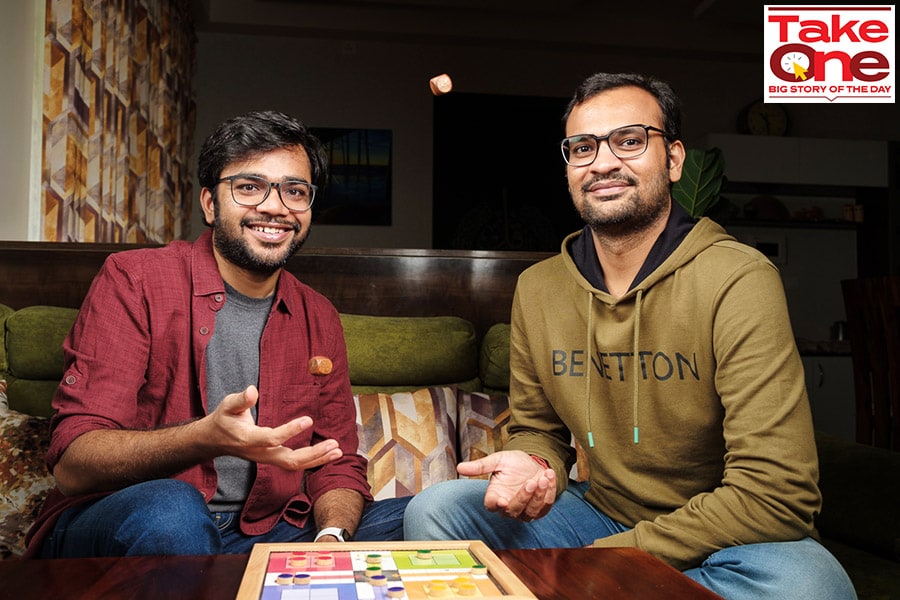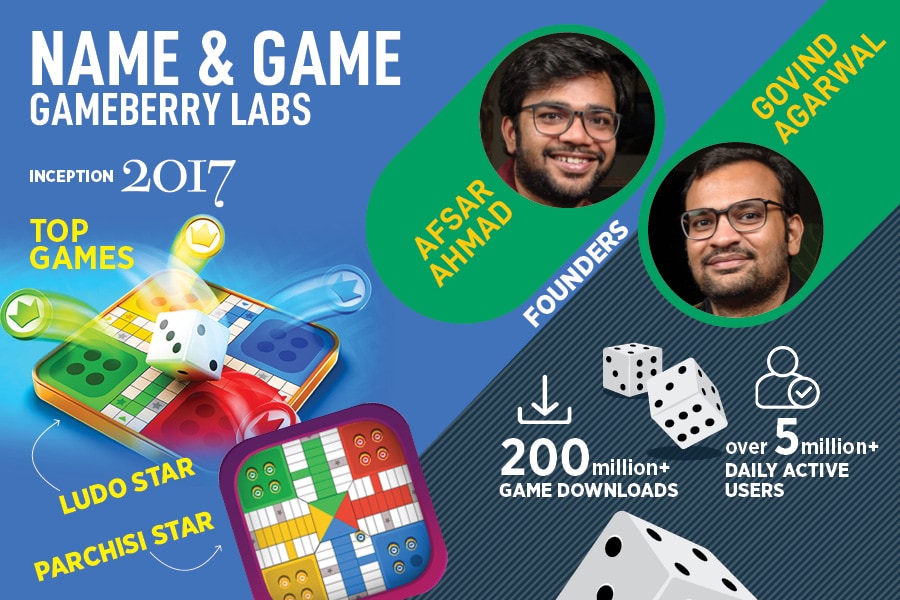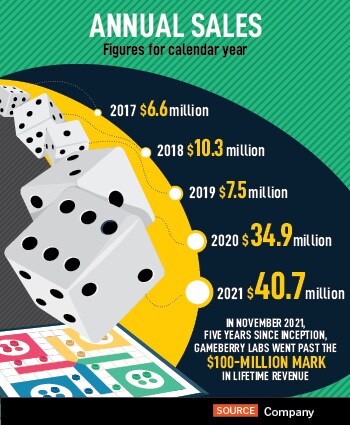
Gameberry Labs: Rolling the dice to success
The makers of Ludo Star crossed $100 million in lifetime revenue last November. The bootstrapped company claims to be profitable from the first year of inception, and it is currently beta-testing two games in the word and board games categories
 Left to Right: Afsar Ahmad and Govind Agarwal, the Co-Founders at Gameberry Labs. Bengaluru. August 2022. Image: Nishant Ratnakar for Forbes India
Left to Right: Afsar Ahmad and Govind Agarwal, the Co-Founders at Gameberry Labs. Bengaluru. August 2022. Image: Nishant Ratnakar for Forbes India
When Sanjiv Mehta, 57, a government employee, reached the peak of boredom during the first phase of the lockdown in 2020, he unknowingly got into an addictive recreation activity—playing Ludo Star on his mobile. The online version of his favourite childhood game was not only a great stress buster but also helped his family spend quality time together. “During the lockdown, passing time, especially during afternoons, was proving to be incredibly difficult. Online Ludo was a blessing for my family and me. We would not even realise that we’ve spent hours playing the game,” he says.
From the time of Mahabharata to date, the game of dice has brought families and friends together, and been a preferred pastime for many. Banking on this, Gameberry Labs, the makers of Ludo Star, headquartered in Bengaluru, and helmed by IIT graduates Afsar Ahmad and Govind Agarwal, started its journey into the world of mobile gaming. “From the time we were studying at IIT-Kharagpur, Govind and I had a shared passion to build great mobile games… games that people would love to grow old with. Games that were simple but deep enough to keep players engaged,” says Ahmad, co-founder.
Gameberry Labs started operations in 2017 by launching Ludo Star. Ahmad and Agarwal witnessed the growing craze for Ludo in the country and saw it as an opportunity to make their mark. “We quit our jobs and started developing the game. We wanted to bring classic board games to mobiles with a rich social experience layer that helped friends and family connect, even if people were miles apart,” says Ahmad, who along with Agarwal worked at Moonfrog Labs before starting Gameberry.
Ahmad heads the company's product, art and UX verticals, while Agarwal takes care of the engineering and technology divisions. Pradeep Gupta, another IIT-Kharagpur alumnus, who is a founding member, heads marketing and growth.





 Last November, Gameberry Labs went past the $100-million mark in lifetime revenue. Growth was relatively plateaued for calendar years (CY) 2017 to 2019 (CY17: $6.6 million; CY18: $10.3 million; CY19: $7.5 million). It shot up drastically in CY20 ($34.9 million) and CY21 ($40.7 million). The company is bootstrapped, has a positive cash flow and no venture capital (VC) funding. “We have been profitable since our first year. We are operating at 50 percent-plus Ebitda with high revenue/employee ($400K). We don't need to secure VC funding to scale the business,” claims Ahmad.
Last November, Gameberry Labs went past the $100-million mark in lifetime revenue. Growth was relatively plateaued for calendar years (CY) 2017 to 2019 (CY17: $6.6 million; CY18: $10.3 million; CY19: $7.5 million). It shot up drastically in CY20 ($34.9 million) and CY21 ($40.7 million). The company is bootstrapped, has a positive cash flow and no venture capital (VC) funding. “We have been profitable since our first year. We are operating at 50 percent-plus Ebitda with high revenue/employee ($400K). We don't need to secure VC funding to scale the business,” claims Ahmad. 





